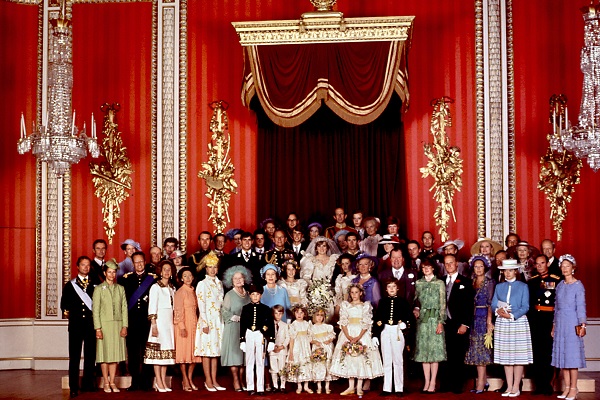So much abuse has been heaped on the European Union in recent years that it is easy to forget that Europe and the EU are not the same thing. Geert Mak reminds us of this fact. He is one of the most celebrated journalists and commentators in the Netherlands. Mak – widely read, multi-lingual and endlessly curious – considers the whole of Europe to be his home. He has won awards for his books in Germany, as well as in his native Holland, and been inducted into the Legion d’Honneur in France. He is also, on the side, a bit of an anglophile.
In 1999, with millennial fever rising, Mak was commissioned by the centre-left Dutch newspaper NRC Handelsblad to set off on an epic journey. His brief: to visit every corner of Europe, from Dublin to Moscow and from Stockholm to Palermo, and to provide an audit of the Continent after what was almost certainly the most shocking and eventful century in its history.
The result, in book form, was In Europe – Travels Through the Twentieth Century. Published in 2004 in the Netherlands (where it sold an astonishing 400,000 copies), it was subsequently translated into many European languages and became a bestseller a dozen times over. Critics were impressed not only by the breadth and depth of Mak’s scholarship, but by his good humour and obvious humanity. It was almost as if he were sitting by his grandfather’s bedside, listening to the old man talk, asking questions, taking notes, hoping always to learn more before death inevitably stilled the conversation.
I can’t pretend, in a short review, to give a proper insight into the complexity of an 873-page text that literally crosses the Continent and covers the events of 100 years. But, take it from me, you will not be disappointed. Starting with an account of the Paris World Fair in 1900, the narrative reminds us of the great issues of the day that had spilled over from the previous century: the trial of Oscar Wilde, the Dreyfus affair; tensions between France and Germany; the arrival of a young Spanish painter, Pablo Picasso; the impact of the recently completed boulevards of Haussmann; and the phenomenon of the city’s ornate Metro system.
But interwoven with the history is the story of a people – in this case the French. Mak points out that, with Paris grown so large, the whole of France had begun to assume the role of the capital’s provider.
‘Generally speaking, the Parisians saw farm folk as savages or barbarians. One could pick them out in a crowd by the sound of their clumping, clattering clogs, and even when they wore shoes in the city, their strange, waddling gait immediately gave them away. The social rift was found everywhere in Europe, but nowhere as emphatically as in France.’
From Paris, Mak takes us across the Channel to London, Europe’s other ‘world city’, where the medieval street pattern largely survived and, even amid a plethora of public works, madness reigned. Mak writes:
‘For some, the chaos of London , this piling up of wayward building styles, without much in the way of planning, constituted a political statement: an act of defiance against the absolute power of a ruler, against a bureaucracy, against a Haussmann. Many British subjects – then as now – attached great importance to their own domain. They were willing to conform to the rigours of a tightly run public life, but as compensation they demanded great freedoms in their own, private realm.’
Berlin is next, then Vienna, setting the scene for the Great War, which Mak recalls in poignant detail, quoting from letters, diaries and personal interviews with survivors. But by the time of the armistice, we are not yet one fifth of the way through our journey. Mak has still to guide us through the inter-war years, in which, he indicates, everything was possible, including the emergence of Germany as a Soviet-style republic or as the most liberal and humane society in Europe.
We visit Petrograd, later to become Leningrad, now Saint Petersburg, where Mak tells us, the Czar never saw the benefit of a functioning civil service, only the efficacy of a secret police, backed by the army, to protect a vast country that he reckoned existed solely to service him and his family. He could never have guessed that he would be overthrown by Lenin, an itinerant agitator who, before leaving Stockholm on the eve of the Russian Revolution, was given money by his Swedish friends to buy a ‘nice suit and a decent pair of shoes’, as if, Lenin mused, he were off to open a haberdashery.
Hitler and Stalin were, of course, waiting in the wings. World War II gradually became inevitable, with the rise of Mussolini as the prologue and the Spanish Civil War as Act One. We are not spared either the horrors of the Blitz, or of Dresden, or the nightmare of the Holocaust. But Mak, in taking us down many well-trodden paths, constantly darts off to the side, to look at an old hotel or palace, or daily life in the Warsaw Ghetto before the rising, or the routine at Chartwell, where Churchill wrote his tirades against appeasement and dictated letters to his secretary from his bricklayer’s scaffold.
Still ahead lies the Cold War, the emergence of the Common Market, the Beatles, sexual liberation, the death of Franco, ETA, the IRA, Thatcherism, the rise and fall of the Berlin Wall, perestroika, the end of the Soviet Union, the liberation of the old East block, the Balkan wars and the burgeoning – seemingly without end – of pan-European peace and prosperity.
Mak – the ultimate social democrat – goes everywhere and talks to everyone, especially the old, who have seen it all and lived to tell the tale. It is a privilege for us, as readers, to go with him, even if we don’t always agree with his judgments. If you haven’t read In Europe already, you should do so at the earliest opportunity. At the very least, it will give you an insight into why the founders of the Common Market thought their work to be of almost religious importance and why Europe today, lost as it is in crisis, is so much more than either a holiday resort or the Devil’s backyard.
In Europe – Travels Through the Twentieth Century; Geert Mak; Vintage Books; £9.99






Comments